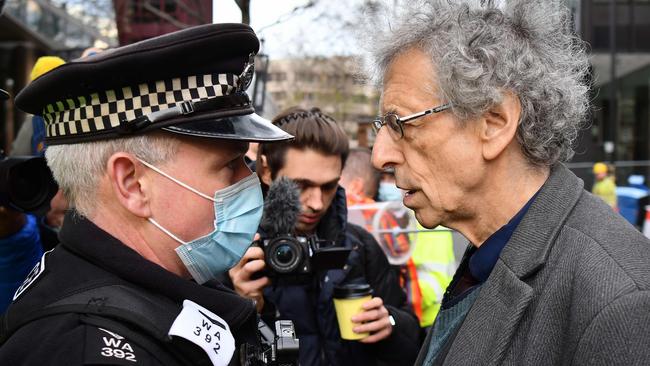Coronavirus: European leaders ease lockdowns in bid to ‘save Christmas’
Political leaders across Europe are desperately trying to ‘save Christmas’, with lockdowns to be temporarily eased.

Political leaders across Europe are desperately trying to “save Christmas’’, with lockdowns to be temporarily eased during the festive period.
Britain, France and Germany have prepared new rules allowing a relaxation of highly restrictive coronavirus measurers so that family members can meet at Christmas — despite each recording hundreds of deaths a day.
Scotland, England, Wales and Northern Ireland have agreed on a common set of temporary rules, allowing three households to mingle indoors for five days over the Christmas period.
At the moment in England there is no mixing of households — indoors or out — although lockdown is to be replaced with tiered levels of rules from next week.
Politicians are trying to balance real fears of a third spike generated by family gatherings against threats of public disobedience. Protests against restrictions have broken out, as have demonstrations against possible mandatory vaccinations, with Piers Corbyn — brother of former Labour Party leader Jeremy — on Wednesday (AEDT) leading a rally outside the offices of the Bill and Melinda Gates Foundation in London.
Prime Minister Boris Johnson said from his isolation at 10 Downing Street: “We all want some kind of Christmas, we all need and we feel like we deserve it. But what we don’t want is to throw caution to the winds and allow the virus to flare up again, forcing us to go back into lockdown in January.”
The government announced a reduction in the length of quarantine for contacts of positive cases from 14 days to five, opening up of travel, and increased rapid testing. But the Christmas plans were released on Tuesday evening, just hours after the latest daily death figures were updated, with a further 609 people dying.
While a Christmas Eve drink at the village pub is off the agenda, Scottish First Minister Nicola Sturgeon said governments were aware of people’s desire to get together:
“We wanted to allow a window, it’s permissible for three households to come together but only in a private dwelling or place of worship or outside. Because it can be done, it is not the case people should do it if they don’t have to. There is a risk when households are coming together.’’
In acknowledging a lockdown-fatigued public was intent on getting together for Christmas regardless of the pandemic, senior cabinet minister Michael Gove said the government didn’t want to “let things go too loose over Christmas’’ and so the opportunities to meet friends and family would be only allowed in a restricted fashion.
Across the Channel in France, President Emmanuel Macron is to ease lockdown measures, allowing greater movement beyond a 1km radius and reopening non-essential shops in a three-stage easing.
He was expected to announce a 30-person limit on church gatherings for Christmas services. In France, like Britain, infections appear to be declining, with 4452 new cases, but deaths, which numbered 500 on Monday, plateauing.
Meanwhile German state premiers have agreed that people will be allowed to mingle between December 23 and January 1, temporarily increasing household contacts from five to 10 people and allowing more than two households to gather.
But in Italy, which has imposed a no-ski edict, the government is considering imposing even tighter travel restrictions.
More than 800 people died of the virus on Tuesday, with 23,232 new infections.
A draft plan prepared for the Spanish government, which announced 170 deaths on Monday, suggests that festive gatherings will be limited to six people, with curfews in place for Christmas Eve and New Year’s Eve.




To join the conversation, please log in. Don't have an account? Register
Join the conversation, you are commenting as Logout